The Dragon Well Manor Estate was built in 2000 and opened in 2004. It is a 27-acre property up in the hills overlooking the city of Hangzhou, and although just a fifteen-minute drive from the edge of the city, its tranquil setting seems light years away from the bustle of the ten million people who live in Hangzhou. Dragon Well is a famous brand of tea in China, and on the drive from the city you pass seemingly endless tea plantations and estates.
Dragon Well Manor itself is marked with a large stone carved with its name in Chinese characters near the entrance. You approach the restaurant along a gently winding path through a beautiful garden, walking up to the wooden building that houses the restaurant. There is no communal dining room here, but eight private rooms, each quite separate from one another and with a view out over the gardens. Our room was air conditioned and even had an en suite bathroom. It was simply decorated, with calligraphy on the walls, and a flower display; fortunately on this hot summer day it was air-conditioned. We never saw another diner while we were here. This reminded me of kaiseki dining in high-end restaurants in Kyoto, where you often eat in private rooms, usually with a view over a pretty garden and where the guest dinner timings are choreographed so that you appear to be the only customers in the restaurant, the only ones that matter. It felt that here, but with the added advantage of acres of pretty gardens rather than the tight space constraints of Kyoto.
Dragon Well Manor was established and is run by Dai Jianjun, who has been a pioneer in China in adopting the farm to table philosophy that has been championed elsewhere by people like Stephen Harris of the Sportsman, Dan Barber of Blue Hill at Stone Barns, and Tekuya Terao of We Are The Farm in Japan. Dai Jianjun has a twenty-acre farm in southern Zhejiang. He sources ingredients here but also from many local farmers, and maintains meticulous records of the ingredients, which farm they came from, and the date and quantity of each delivery. These are maintained in a ledger that was shown to us at our table, and later we saw a large cupboard stacked with similar ledgers dating back to the start of the restaurant. We just drank tea, but there was a very unusual wine list that was a rolled up series of wooden slates rather like book covers that were joined together. When unfolded, each was marked with the name of a drink in Chinese characters and its price, whether this was wine, a soft drink or Chinese liquor. This was certainly a very pretty way of displaying a drinks list.
The food here is intentionally simple, or country cooking as the chef puts it. There is no artificial MSG used here, but just traditional seasonings of vinegar, salt and soy sauce. Each meal starts with a bowl of soymilk made on the premises, a choice of either salty or sweet. The salty version had spring onions (scallions) and chives added. On the table are a series of condiments and pickles. The meal began with several dishes brought out at once. Duck from the restaurant farm arrived in the form of soup, with thin slices of duck in a quite clear broth flavoured with a local root that didn’t seem to have an obvious English translation. This was a simple but enjoyable soup, the duck having good flavour (15/20).
A dish called “Mum’s Pork” was slow cooked with soy and was very tender, coming with a preserved egg. This dish is based on a legend about a mother who hears her son is returning from war, but is not quite sure when he will arrive. She prepares a pork dish, but on the first day there is no sign of the son, so she cooks it a little more on the second and subsequent days until he finally turns up. Chinese cookery is full of dishes that have backstories like this. Anyway, the end result was a very tender pork dish with a rich sauce, the pickled egg an effective way to balance this richness (comfortably 16/20).
A pretty dish of seasonal vegetables resembling called mao mao cai, a relative of bak choi that is grown locally, with the vegetables arranged in a ring resting in a stock. Only the most tender core 5% of the plant was used, the remainder going into stock. These were tender and pleasant, though with minimal seasoning the aim was presumably purity rather than bold flavour (14/20). A spoon contained the meat from tiny crabs from Qiantang River.These had intense crab flavour, served with a vinaigrette that nicely balanced their inherent slight sweetness. These must be incredibly laborious to prepare, but had lovely flavour (16/20). Lake turtle soup was more of an acquired taste, the meat having a soft, slippery texture (hard to score but for me 12/20 at best). Chinese winter melon and dried scallop was another tricky dish to assess. With my western palate the scallop just seemed hard and chewy, but my Chinese dining companion, a published food author and recognized dining expert, loved it, reckoning the dried scallops were made from larger scallops than usual and were less chewy in texture than normal. Usually he and I have an almost uncanny coincidence of views on dishes when we eat out, but this time we were sharply divided. Perhaps it is best if I don’t score this, as it seems to be something that is designed for a Chinese palate.
A tiny mound of rice went well with the pickles, and at this point we had the last savoury dish, entitled “dish swimming in the West Lake”, a reference to the large and pretty lake in Hangzhou that is the main attraction of the tourist industry there. The fish was presented as if still swimming, and was indeed a local fish, black carp, caught in the Qiantang River that passes through Hangzhou. This was served on the bone in a sauce made from both fish and seafood stock. The fish had quite a delicate flavour and the sauce was good, rich and quite meaty, complementing the fish well (15/20).
As the plates were cleared away a dessert of snow pear appeared. This was fine but was just a piece of fruit, so there seems no point in scoring it. Rather oddly to my eyes, there was also a plate of boiled corn husks brought out, which seemed an unusual idea at this stage of a meal, especially as the corn was not particularly sweet. Similarly a plate of plain bao bread with no filling at all was just, well, a rather chewy dough. It was notionally flavoured with wine but this was hard to detect, apart from a hint of acidity. A bowl of fruit had melon, dragon fruit and some excellent grapes.
The bill came to CNY 1317 (£150) each with just tea to drink; all this simplicity doesn’t come cheap. If you drank wine then a typical cost per head might be around £190 with a tip to your waitresses. The two that served us were friendly and attentive, bordering on too much so as they rather fussed about, lingering as we ate our food. Dragon Well Manor is certainly a unique experience, with its gorgeous setting and extensive backstory certainly adding something to the overall impression of the place. The quite simple cooking lets the ingredients speak for themselves, which is no bad thing but also perhaps makes it difficult to deliver real culinary thrills. The emphasis here is on purity and delicacy rather than bold flavours and elaborate technique, and there are some tastes in the meal that seem to be more appealing to a Chinese palate than to mine. Nonetheless this was a most interesting and enjoyable experience.





























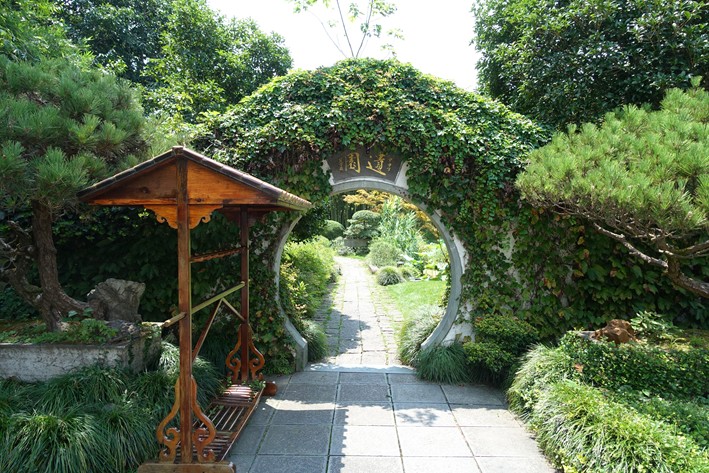

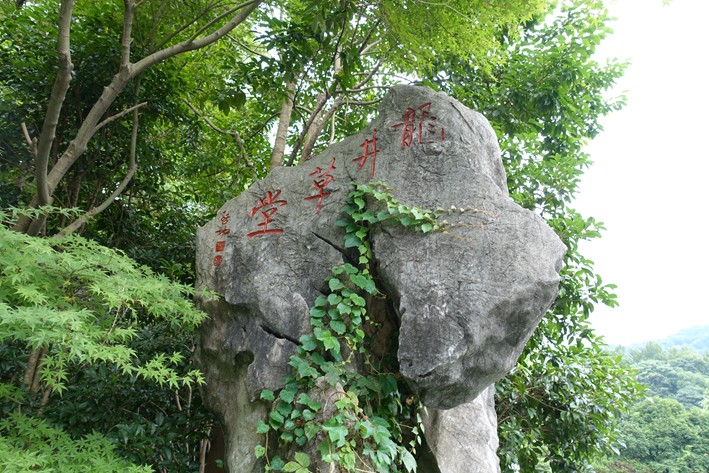
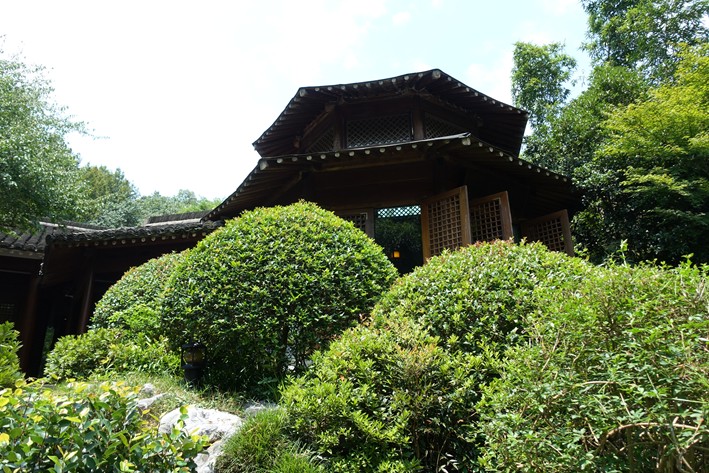
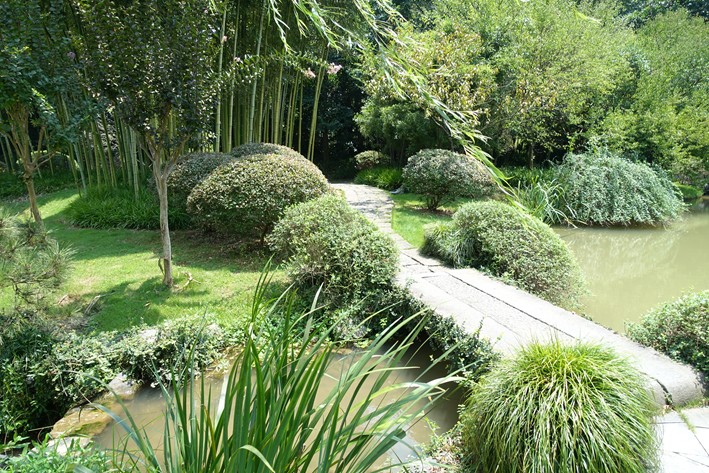
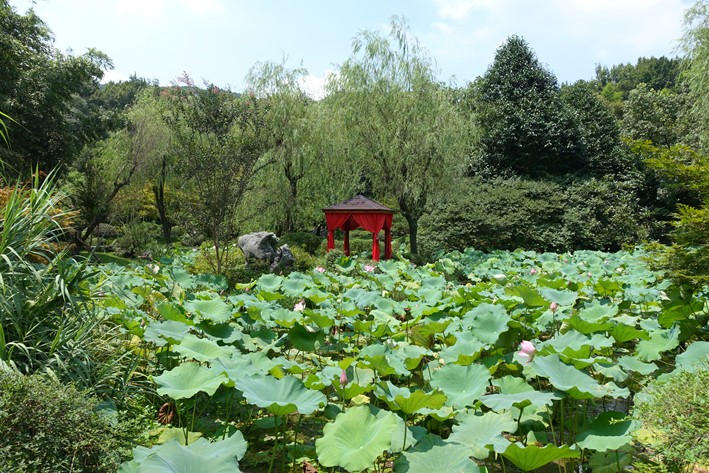
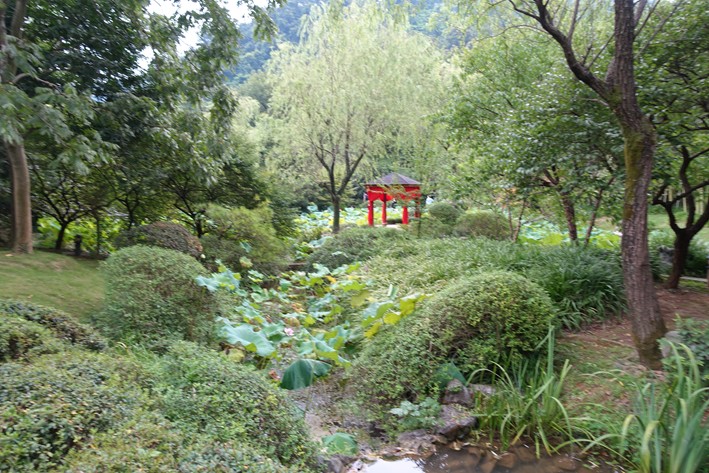
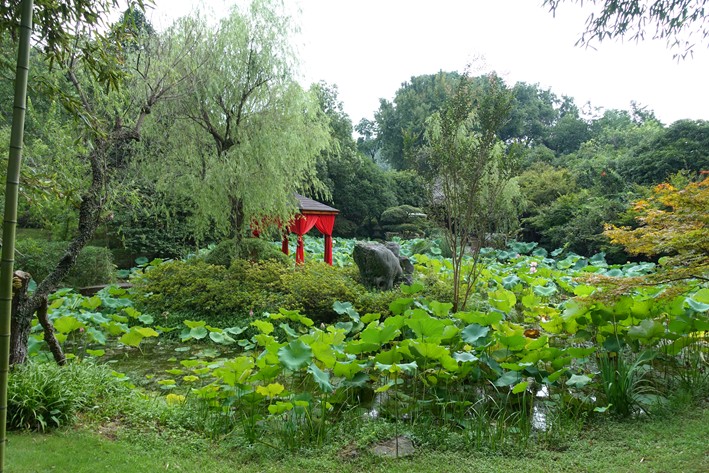
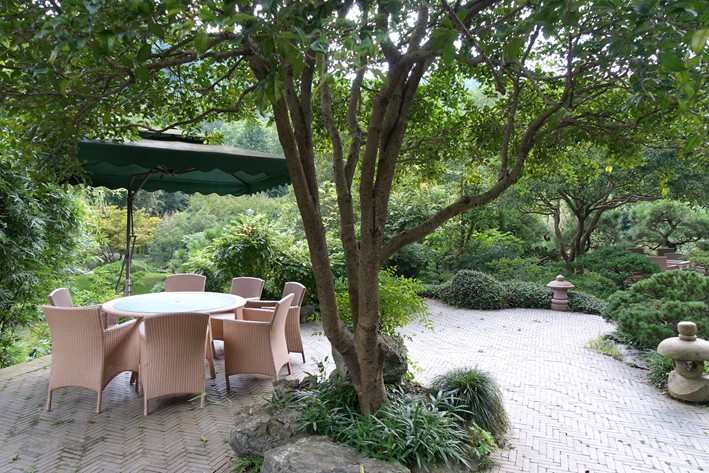
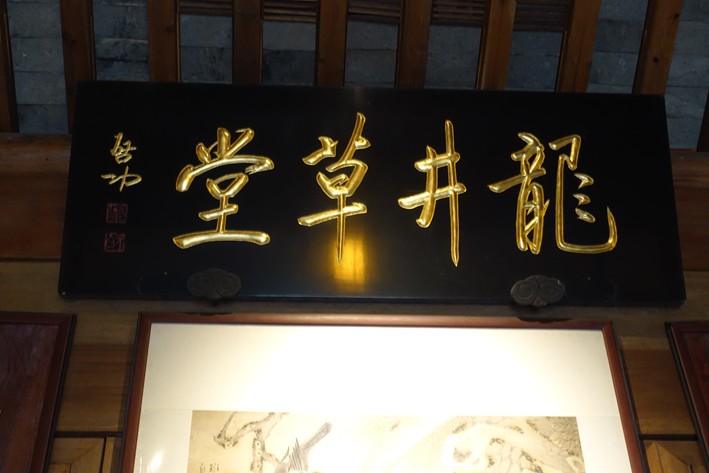
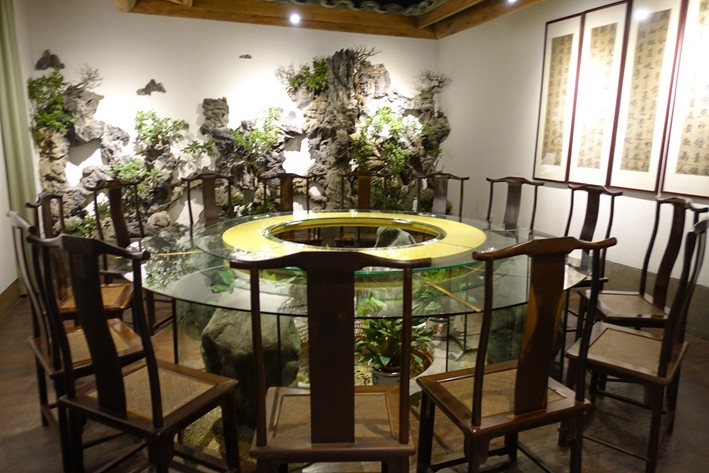
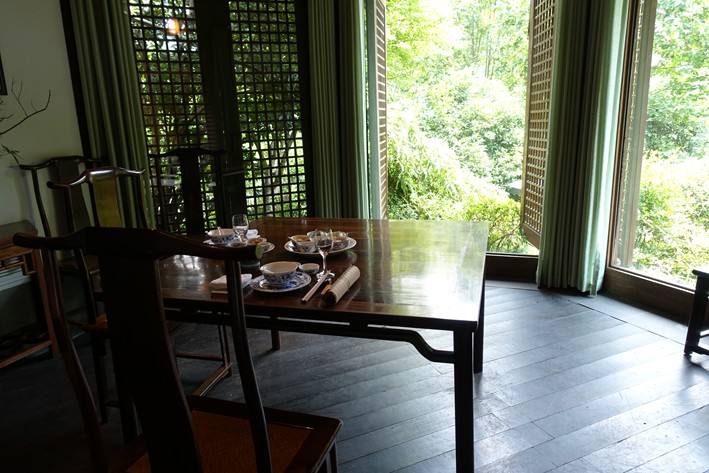
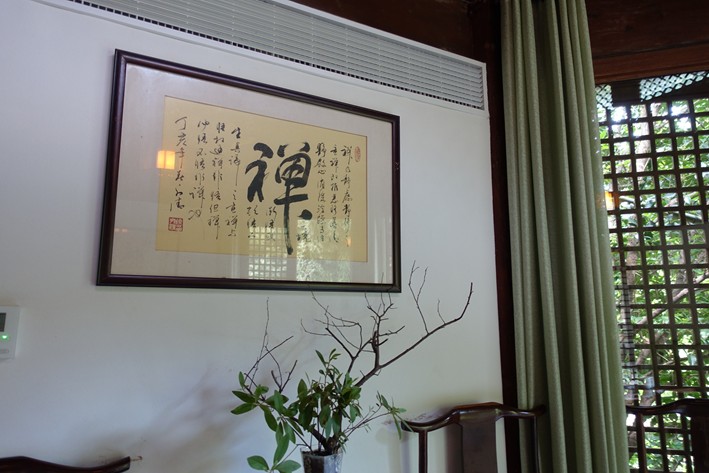
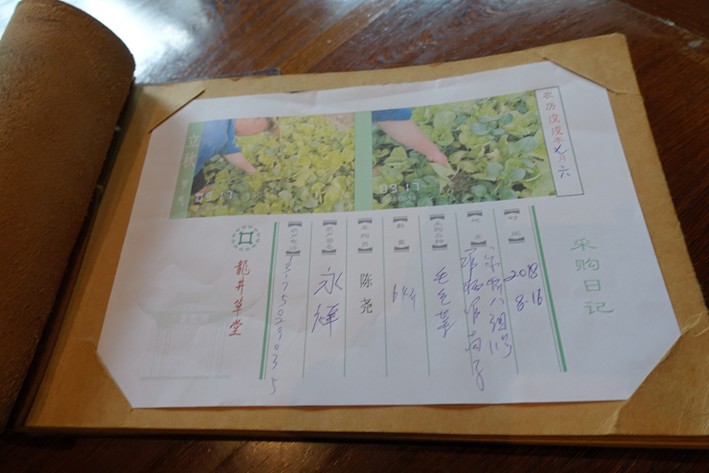
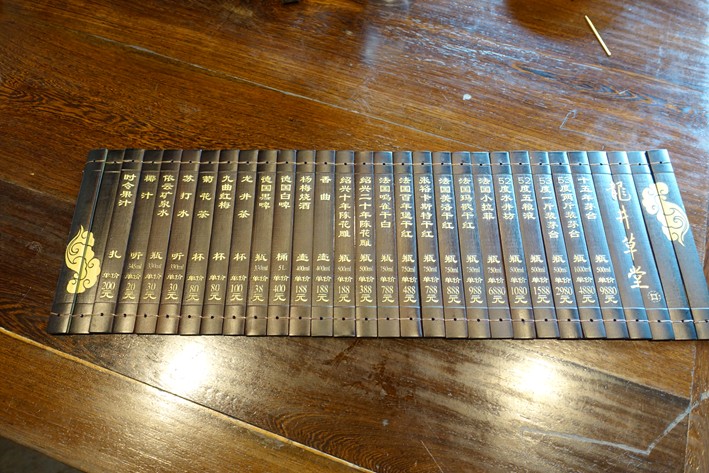
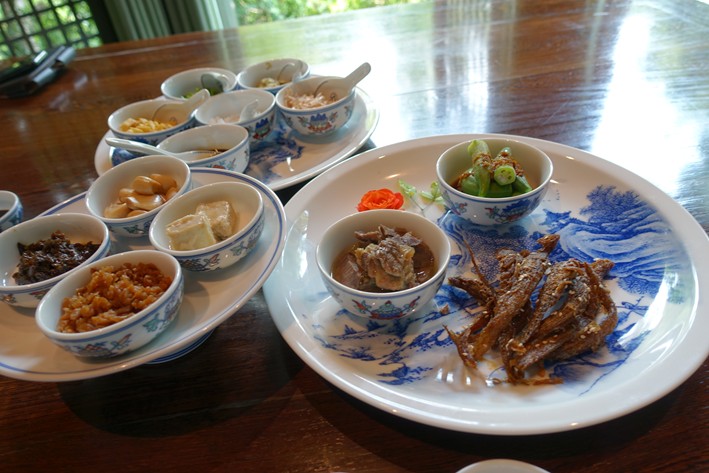
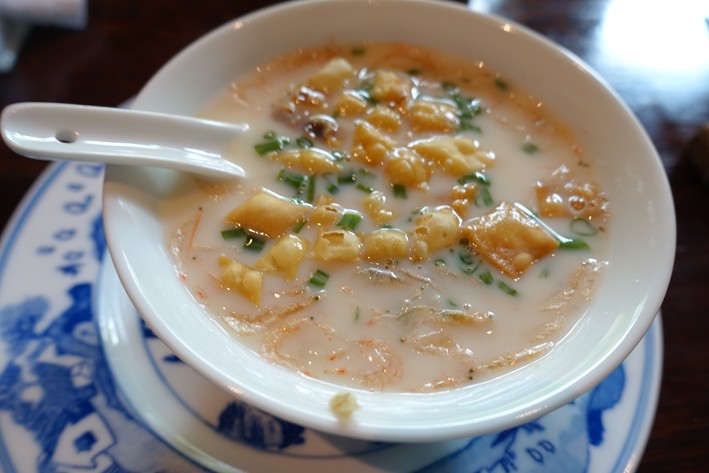
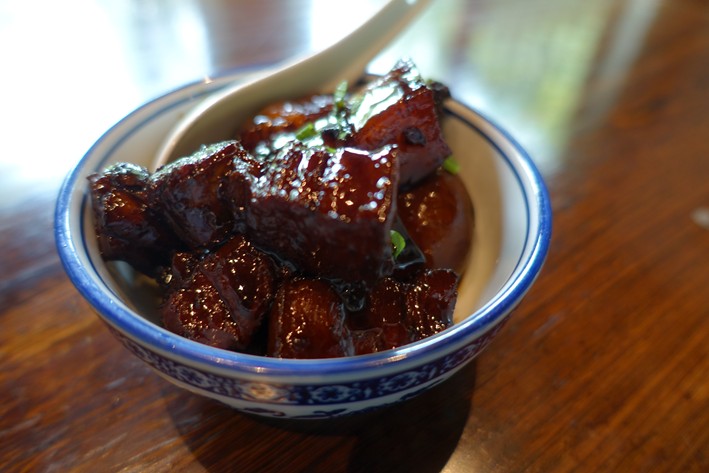
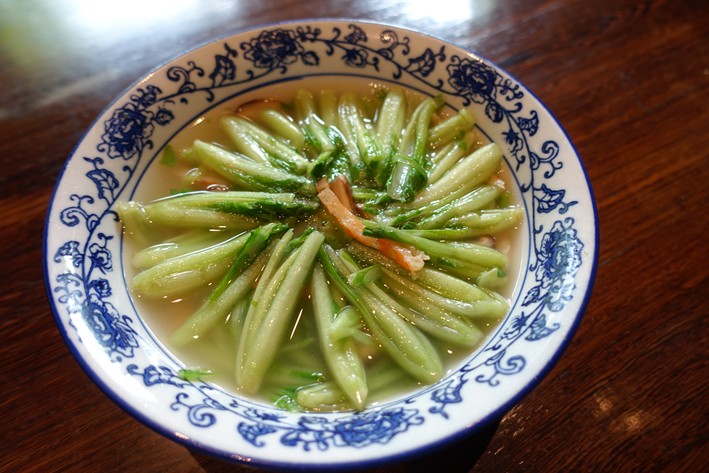
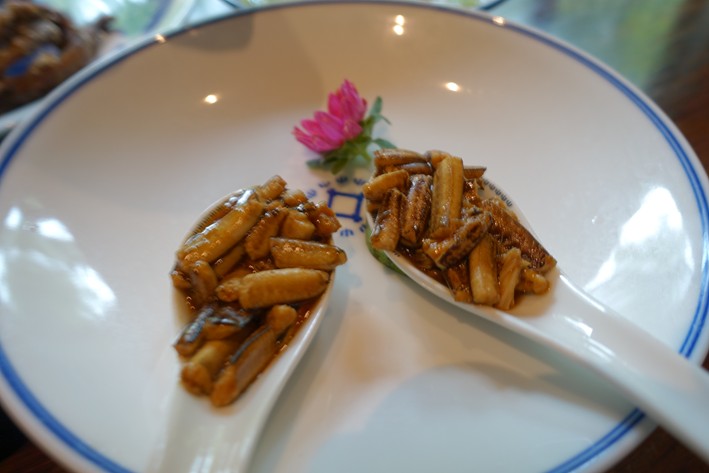
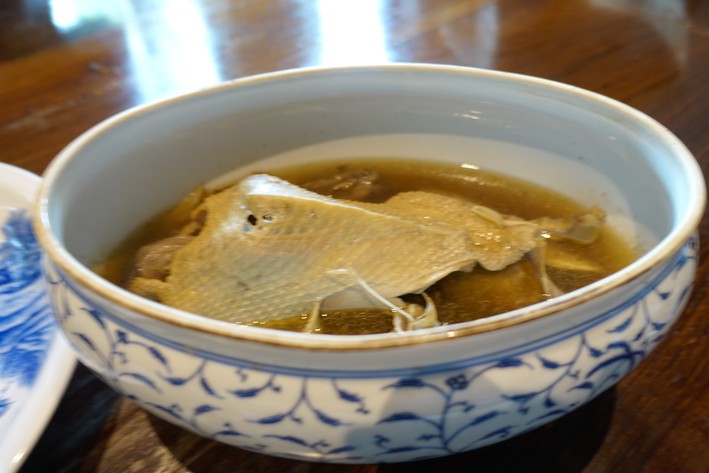
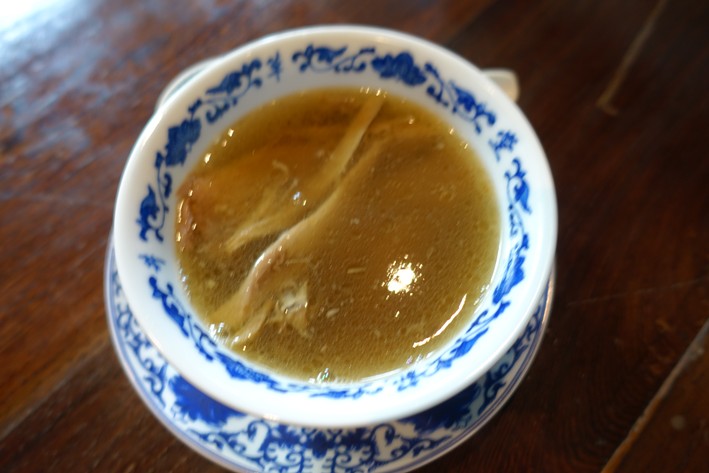
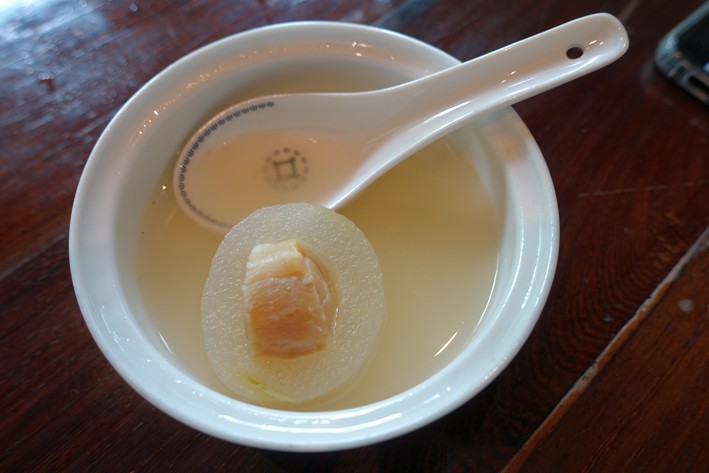
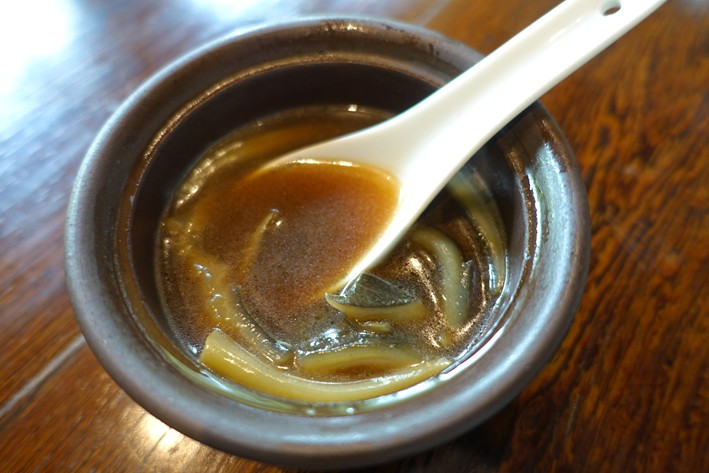
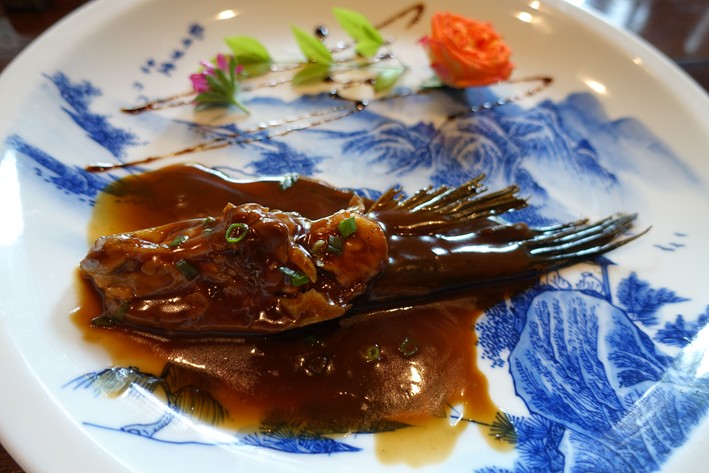
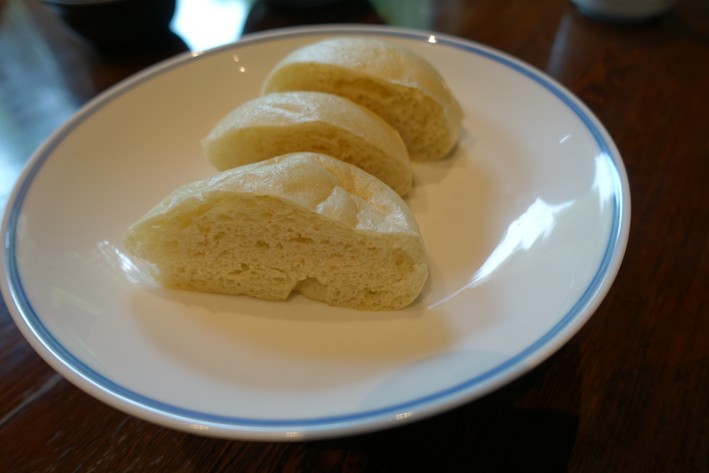
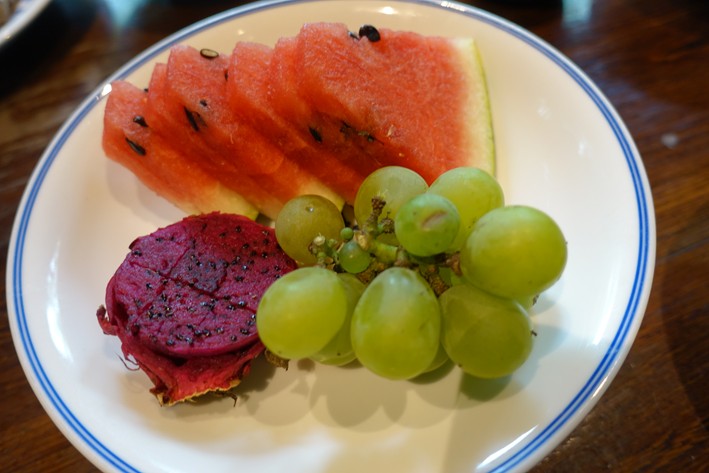
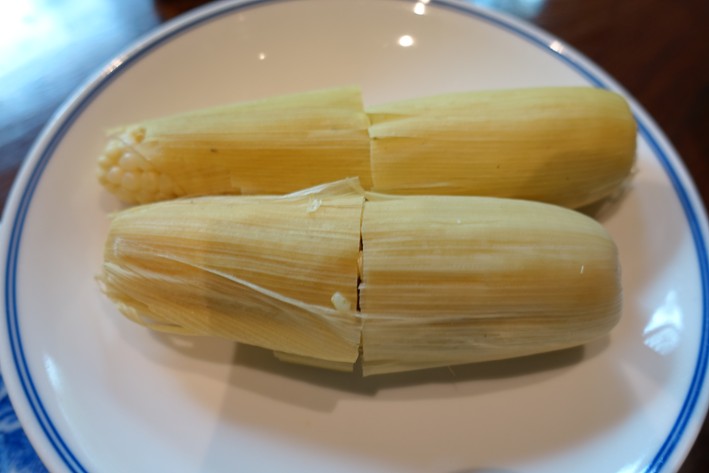

Jason
Great review as always! I went here 4 years ago with some locals. I remember the pork dish and the duck dish fondly. But I agree with you on the palate differences. We were served the single boniest sardine I ever saw. The others loved it. I was pulling out bones